Abstract
OBJECTIVES--To determine the extent and nature of prescription monitoring incidents by hospital pharmacists and to derive a performance indicator to allow prescription monitoring to be compared among hospitals in North West Thames region. DESIGN--Survey of all self recorded prescription monitoring incidents for one week in June 1990. SETTING--All (31) acute hospitals in the region with pharmacy departments on site, covering 10,337 beds. SUBJECTS--210 pharmacists. MAIN MEASURES--Number of prescription monitoring incidents recorded, their nature, and outcome; a performance indicator of prescription monitoring (incidents/100 beds/week) and its variation according to specialty and site. RESULTS--3273 prescription monitoring incidents were recorded (median 89 per hospital, range 3-301), the most common being related to the dose and frequency of administration of the drug (933 incidents, 29%). These incidents led to alterations of prescriptions on 1611 occasions; the pharmacist's advice was rejected on 81. The greatest number of prescription monitoring incidents/100 beds/week by specialty was recorded for intensive therapy units (median 75); the medians for medicine and surgery were 32 and 21 respectively. This performance indicator varied 20-fold when analysed by site, values ranging from 3.6 to 82.1 (median 29.8). CONCLUSIONS--Hospital pharmacists play a large part in monitoring and improving prescribing, and most of their interventions are related to the basics of prescribing. They therefore have a role in medical audit, working with clinicians to identify prescribing problems, and to set standards and monitor practice. A performance indicator of prescription monitoring incidents/100 beds/week allows comparison of pharmacists' activities among sites and may be a valuable tool in auditing them.
Full text
PDF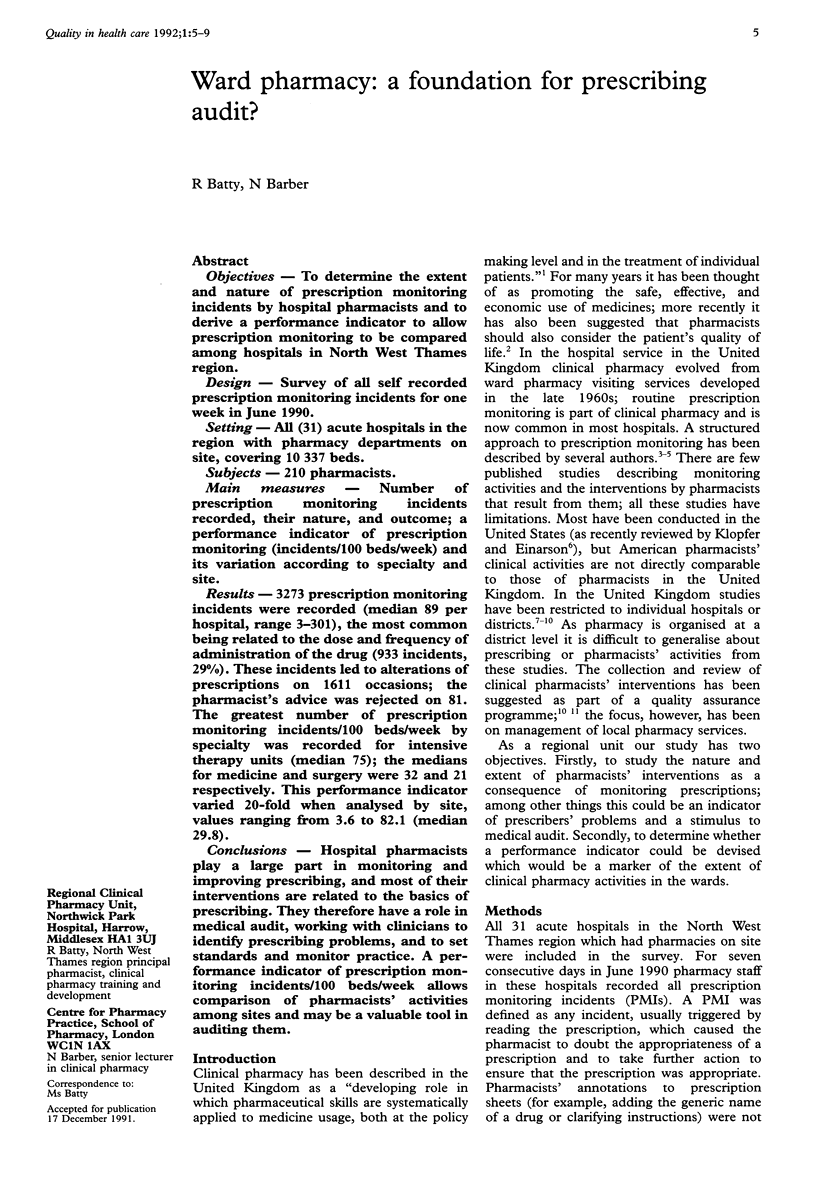
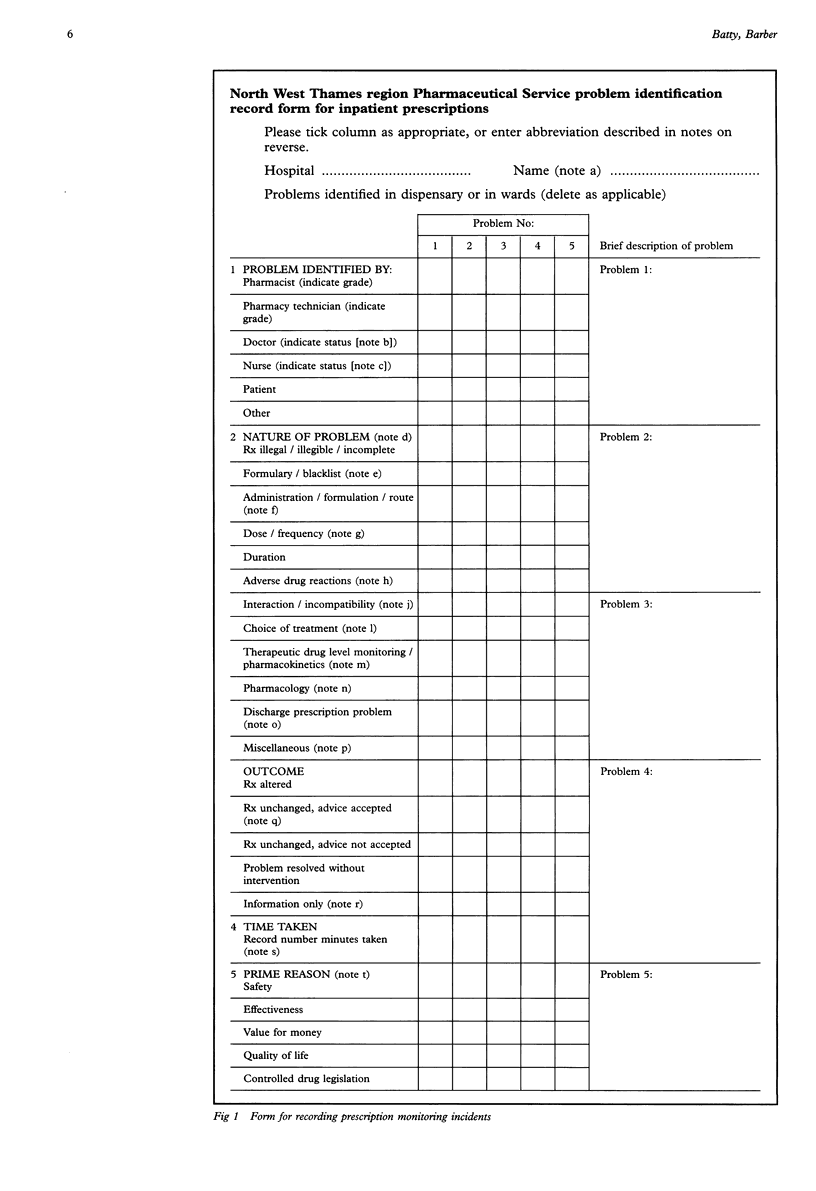
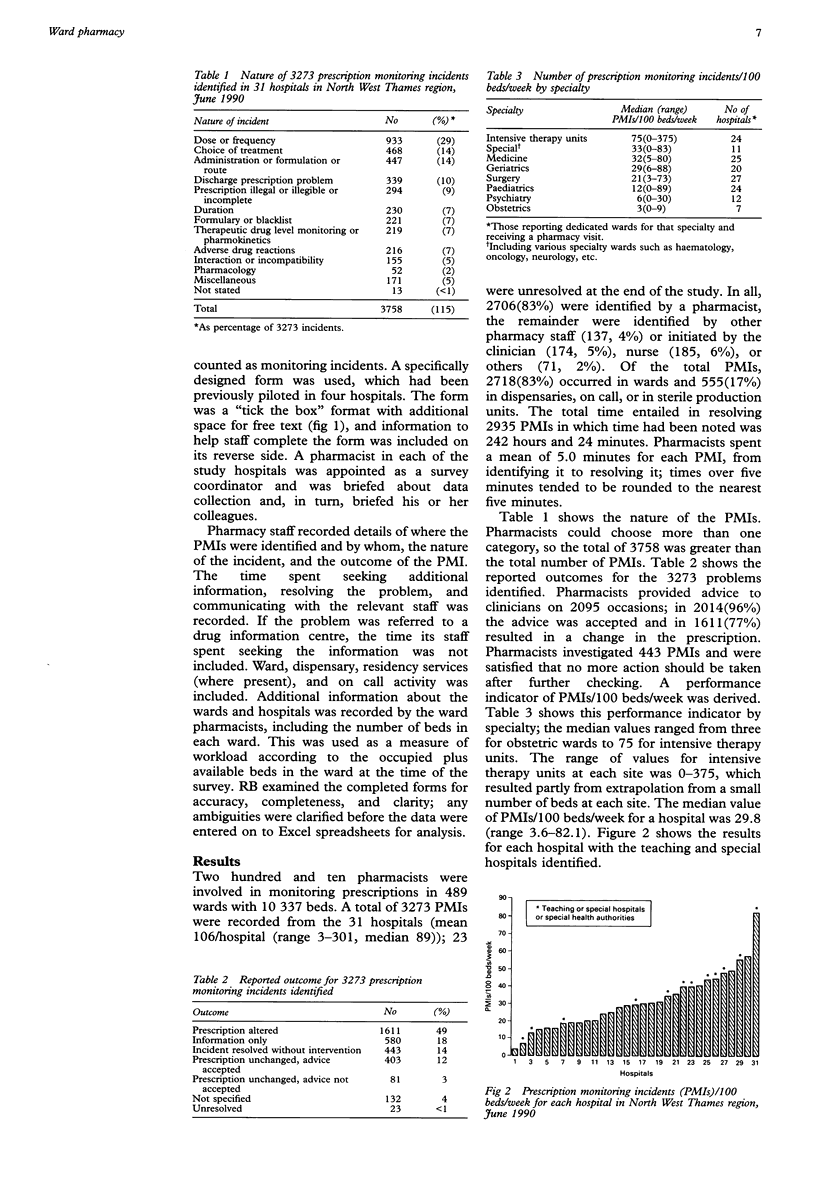
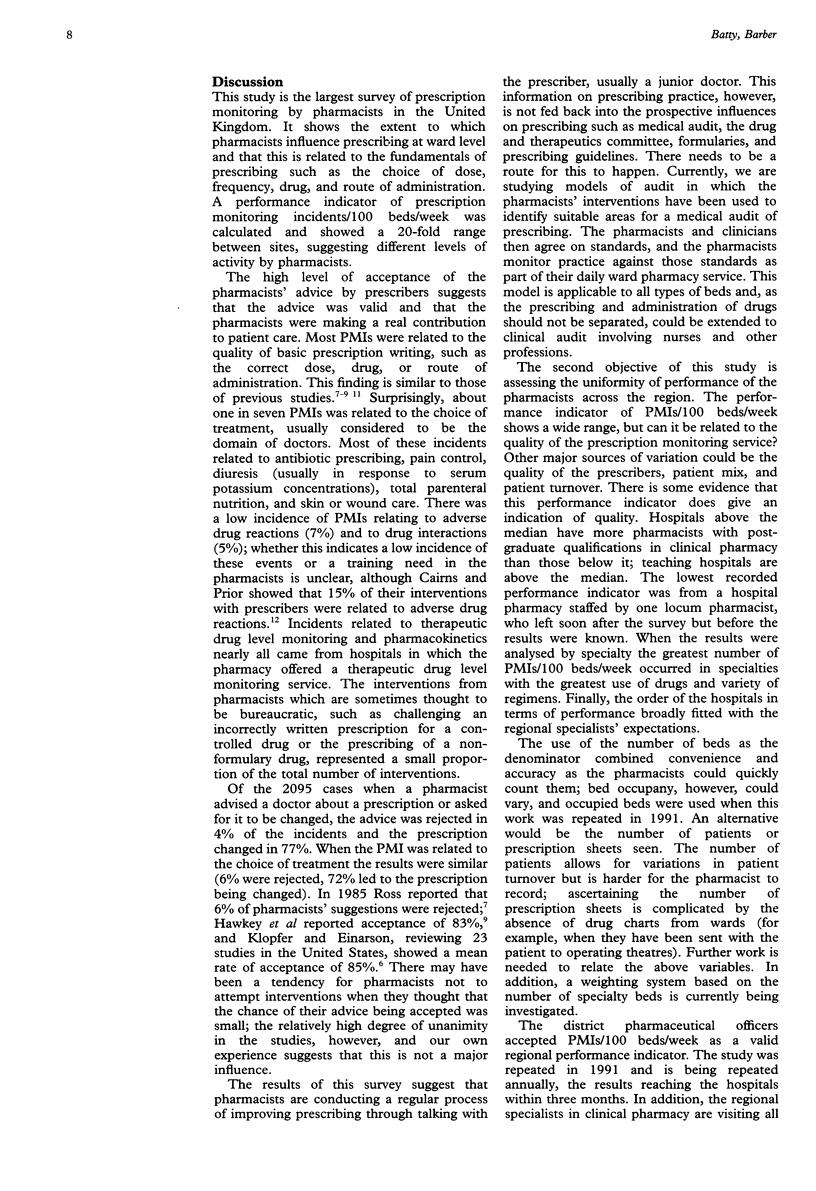
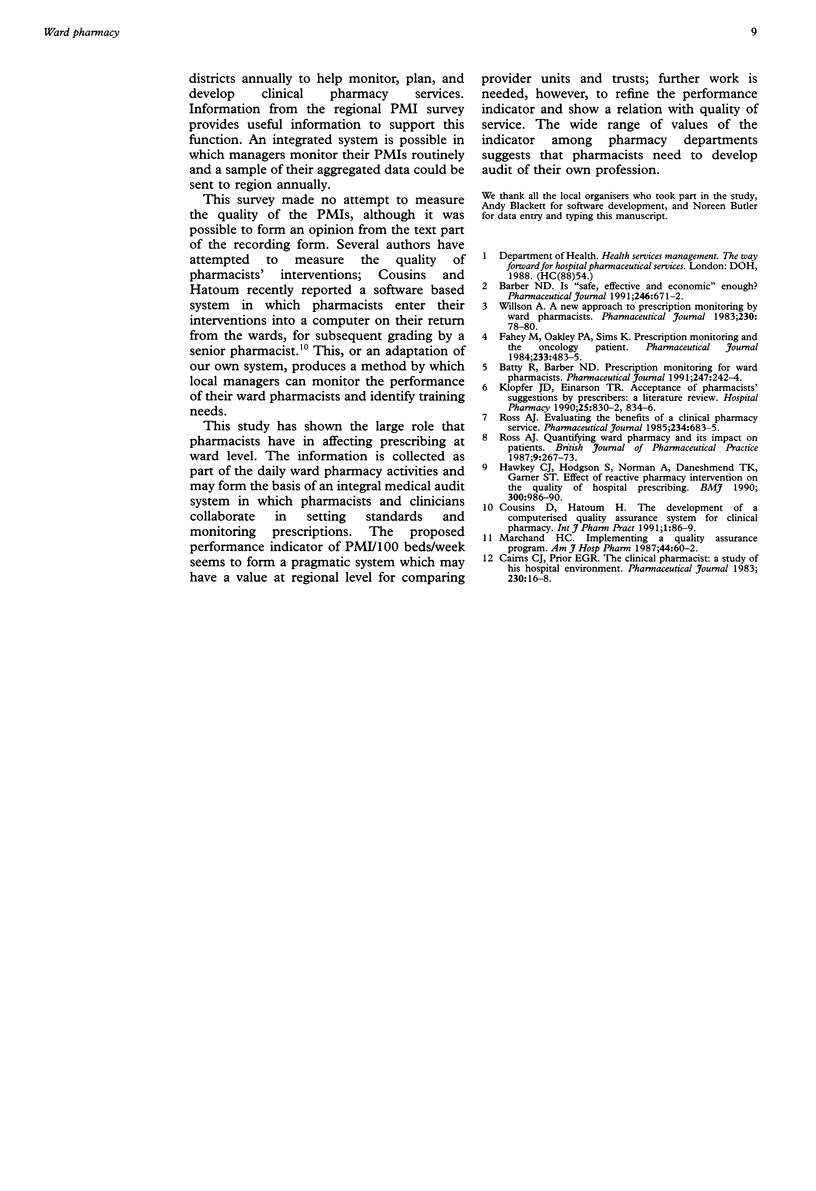
Selected References
These references are in PubMed. This may not be the complete list of references from this article.
- Hawkey C. J., Hodgson S., Norman A., Daneshmend T. K., Garner S. T. Effect of reactive pharmacy intervention on quality of hospital prescribing. BMJ. 1990 Apr 14;300(6730):986–990. doi: 10.1136/bmj.300.6730.986. [DOI] [PMC free article] [PubMed] [Google Scholar]
- Klopfer J. D., Einarson T. R. Acceptance of pharmacists' suggestions by prescribers: a literature review. Hosp Pharm. 1990 Sep;25(9):830-2, 834-6. [PubMed] [Google Scholar]



